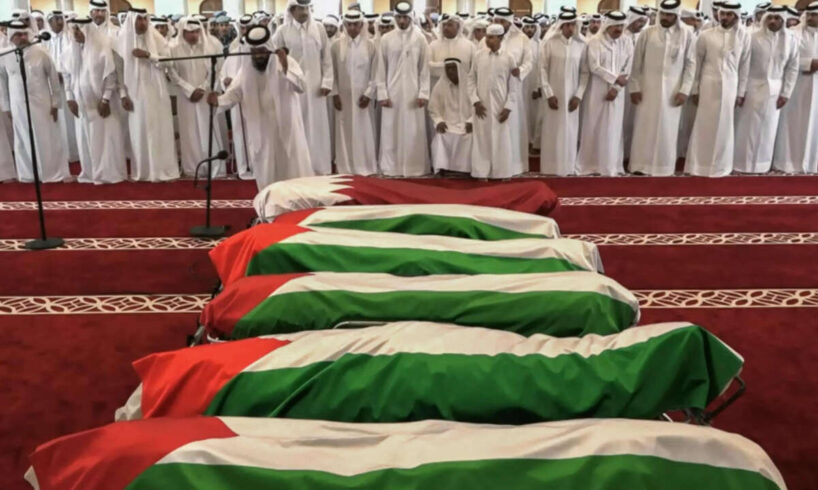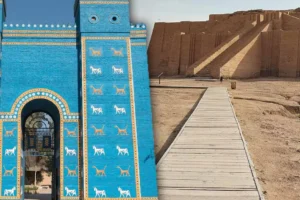
“Let’s get through the night safely,” an Israeli official who frequents government corridors summarized his concern. We spoke mere hours after Israeli missiles struck the Hamas compound in Doha. As hours passed and doubts grew about whether the operation succeeded, Israeli anxiety increased. A friendly source in the US State Department reminded me during those hours how Ronald Reagan reacted to Israel’s 1981 attack on Iraq’s nuclear reactor.
Publicly, the president then used the word “disappointment” – exactly the word the Trump administration chose this week. Meanwhile, in the closed room, at least according to what Richard Perle, a senior Reagan official, later said, “the president thought it was a great operation.” It’s unclear which historical version is correct, as many denied Perle’s version. What’s clearer is that the bombing in Doha was less successful than the strike on Osirak. Above and beyond everything else, Donald Trump loves success. So if the operation had fully achieved its goal, it probably could have been swallowed more easily by him and the world.
As long as its results remain unclear, Israel is confused. But the gaps are much wider than winner and loser imagery. In Israel’s view, Qatar is an inseparable part of the massacre and Hamas’ biggest financier. Every second person on the street will tell you that not only are Hamas leaders in Qatar marked for death, but so are the emirate’s leaders themselves. On the other hand, in the US and globally, Qatar is viewed quite differently. In the American establishment, it’s considered a US ally that, among other things, hosts the largest American base in the Middle East.
Additionally, Qatari investments worth trillions of dollars in the US economy are very important to Trump. Many senior figures around him have done or are doing business with Doha. The Israeli move put them in an uncomfortable position. Moreover, Qatar has cultivated an international status in recent years. It invests large sums in many countries and makes peace between nations. But only we know that the same Qatar simultaneously spreads hatred against Israel and the Muslim Brotherhood ideology through sophisticated means.
Activists from Pakistan’s Jamaat-e-Islami (JI) party march holding a banner during a protest against Israel’s air strikes targeting Hamas leaders in Qatar, in Islamabad on September 10, 2025 (Photo by Farooq Naeem / AFP) AFP
The world doesn’t understand this yet, so an attack on it and its sovereignty isn’t comparable to an interception in Africa but constitutes a shocking international event, especially in the Arab world. There, conspiracy theories join factual reality. It’s hard for us to believe, but the dizzying Jewish success in recovering from the Simchat Torah massacre to strike everyone who rose to destroy us – Iran, Syria, Lebanon, Gaza, Yemen, and now Qatar – fuels an absurd theory spreading among our neighbors.
According to the theory, Israel intends to soon realize the biblical vision of Greater Israel. From the Mediterranean Sea to the Euphrates and Tigris, no less. That’s what the masses believe. This fear apparently also drove Arab leaders to make pilgrimages to Doha the day after the operation. Even Mohammed bin Salman from Saudi Arabia, the great enemy of the Al Thani family and who initiated the Arab boycott of Qatar in the previous decade, embraced the dangerous emirate this week. This wasn’t the result Israel anticipated. All this tension added to the already depleted international oxygen.
After two years of war, not only our adversaries in the world but also our friends struggle to understand where Israel is heading. And the operation in Qatar, for many, was pouring a barrel of oil on the fire that was already burning around the globe in vain. It’s not certain that people in Israel fully understand this. Against all the storms that will rage around, Trump and his administration are with us, at least for now. Netanyahu’s team knew it would be hard to justify the Qatar operation to him.
Therefore, it was agreed in advance to explain to the president that striking “Hamas abroad” leaders is a lever for advancing the hostage deal – which he, as is known, very much wants. Perhaps that’s why his response was indeed relatively restrained. The White House spokesperson emphasized that Hamas deserves to be eliminated but criticized the operation’s location. The question that’s currently too early to answer is what the long-term implications will be, both from Trump and the rest of the international community.
Smart, but not necessarily right
The content of what the many senior officials who came here said – Dermer, former Shin Bet chief Ronen Bar, Benny Gantz and Gabi Ashkenazi, senators and Congress members, senior Trump administration officials, and Arab state representatives – is confidential. But what can be discussed is the atmosphere. Grand words about “peace” and a “new Middle East” aren’t being uttered here. Everyone is much more realistic than the illusions of the 1990s.
But there is a genuine desire by well-intentioned people to make our conflicted region quiet, stable, and normal. This isn’t simple at all, since in the Arab view, an action like the assassination in Qatar is a shocking event. In Israel, they claim that the quiet messages from Arab leaders contradict what they say publicly. “We’re talking about the exact same people, and sometimes the gap is five minutes” between what’s said outside and what’s said on the phone, says a knowledgeable Israeli source.
Still, comparing what was said at the current conference to the atmosphere last year teaches what has changed. A year ago, even though we were in the midst of war, Joe Biden was president, Hezbollah was at full strength, and Iran hadn’t yet been struck, and there was strong talk about peace between Israel and Saudi Arabia. This year, an agreement with bin Salman is no longer in the cards. And as mentioned, funny as it may sound to Israeli ears, our best friends in the neighborhood want us to clarify that we have no intention of conquering the entire Middle East.
They truly and genuinely fear, and they mainly understand – probably better than us – that no regional force can stand against the IDF. In our eyes, Israel is still the victim defending itself against the horrors of the massacre two years ago. In their eyes, we long ago turned the tables, and now we’re a conquest-hungry attacker also backed by an American president without restraints. Seniors who attended the conference defended against the criticism.
This frame grab taken from an AFPTV footage shows smoke billowing after explosions in Doha’s capital Qatar on September 9, 2025 (Photo: Jacqueline Penney / AFPTV / AFP) Jacqueline Penney / AFPTV / AFP
They argued that hosting terror organizations in countries that see themselves as normative is unacceptable. “Would anyone agree that PKK headquarters (the Kurdish rebel organization against Turkey) operate in Israel?!” one of them asked rhetorically about the operation in Qatar. They also said the operation “wasn’t done because of the host country,” meaning Qatar, but following Israel’s principled decision to eliminate everyone involved in the October 7 massacre. They recalled that after the massacre of Israeli athletes in Munich in 1972, Israel eliminated those involved in the heinous act across European countries.
Similarly, it’s now settling accounts with Hamas leaders abroad, who knew in advance about the Simchat Torah massacre, financed it, and tried to coordinate action with Hezbollah. According to them, Qatar’s role in hostage deal negotiations also had no connection to the decision.
According to cabinet ministers, “Hamas abroad” was a more rigid factor than “Hamas in Gaza” regarding the organization’s surrender. To put it explicitly, one of the goals of the interception in Doha was to remove those who were preventing an Israeli victory. Is victory indeed behind the door? The answer was actually given by Blue and White chairman Benny Gantz, whose conference remarks were cleared for publication. “The war is being conducted too slowly,” the former defense minister said, emphasizing, “We need to go all the way now, we have no alternative. We must remember that over the years we tried many operations and other ways, and they failed.” Still, his words that time is pressing are very true.
The international community is increasingly closing in on Israel. If Israel’s friend Ursula von der Leyen, president of the European Commission, proposes damaging ties with Israel, it means even she can no longer stand the criticism.
And even though justice is on our side, in political life one needs to be not just right but also smart. Netanyahu and Zamir need to internalize this and bring Israel to victory within a few weeks. If they don’t, Trump will pull out a red card.





